DERA BAJWA, Pakistan: It was supposed to be the final leg of Amir Ali’s monthslong journey to Europe. But he was nowhere near his destination, with only death in sight.
The 21-year-old Pakistani had been promised a visa and a flight to Spain. Yet six months, four countries and $17,000 later, he found himself crammed in a fishing boat in the Atlantic Ocean alongside 85 others, screaming for their lives as seawater sloshed over the gunwales.
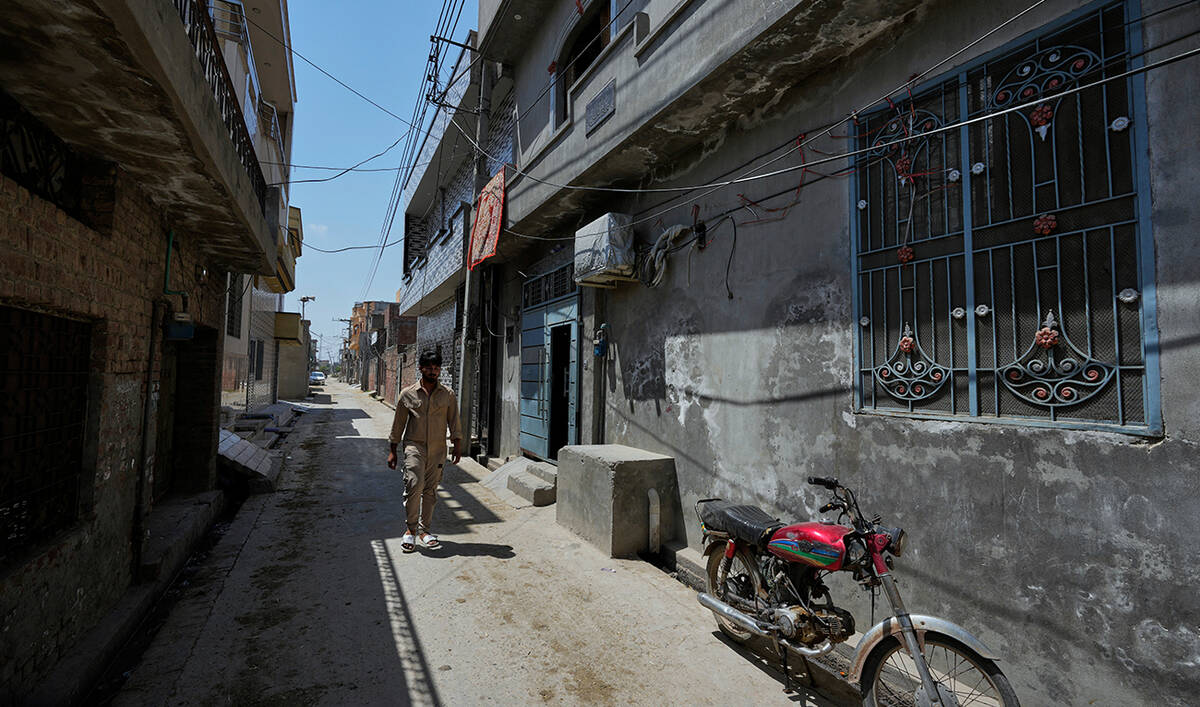
Amir Ali, who survived a failed attempt to reach Spain by boat, walks down a street near his home in Dera Bajwa, a village in Gujranwala district, Pakistan on April 23, 2025. (AP)
Forty-four fellow Pakistani migrants perished during the 10-day failed crossing in January from Mauritania’s coast toward Spain’s Canary Islands.
The deadly journey cast a spotlight on how globalized and sophisticated smuggling networks on the West African coast — and specifically Mauritania — have become. Interviews with survivors and relatives of migrants who died revealed how smugglers have adapted to tighter border controls and anti-migration policies across the Mediterranean and North Africa, resorting to lengthier, more dangerous routes.
Ali’s odyssey began last July. After making an initial deposit of 600,000 Pakistani rupees ($2,127), he went to Karachi airport, where he was told to wait for a shift change before approaching the immigration counter.
“The smugglers had inside help,” he said. He and other migrants were swiftly put on a flight to Addis Ababa, Ethiopia.

Amir Ali, who survived a failed attempt to reach Spain by boat, walks down a street near his home in Dera Bajwa, a village in Gujranwala district, Pakistan on April 23, 2025. (AP)
From there Ali boarded a second flight to Dakar, Senegal, where he was told someone would be waiting for him.
Instead, when he arrived he was told to go to the Senegal River bordering Mauritania, a seven-hour taxi ride north. He joined other Pakistanis traveling to the Mauritanian capital, Nouakchott. In each country he passed through, bribes were demanded for visas, Ali said.
Imran Iqbal, 42, took a similar journey. Like Ali, he flew from Karachi to Senegal via Ethiopia before reaching Mauritania. Other Pakistanis Iqbal met, he said, traveled through Kenya or Zimbabwe enroute to Mauritania.
WAITING GAME
Once in Mauritania, the migrants were taken to cramped safe houses where smugglers took their belongings and deprived them of food. “Our passports, our money — everything,” Iqbal said. “I was essentially held captive,” Ali said.
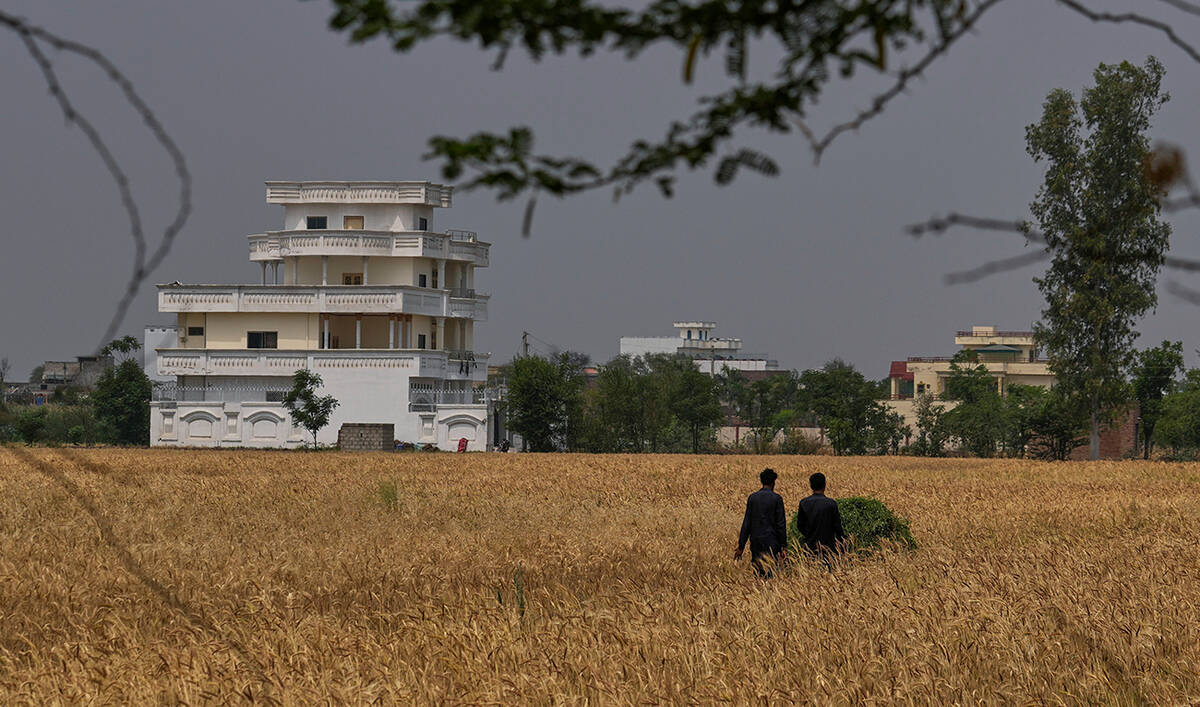
Villagers walk a loaded cart through a wheat field in Gajju, Pakistan, passing a house owned by a family that settled in Europe, on April 16, 2025. (AP)
During the six months Iqbal and Ali were in Mauritania, smugglers moved them repeatedly, beating them to extract more money.
While he managed to get some money sent from Pakistan, Iqbal did not tell his family of his dire situation.
“Our parents, children, siblings ... they would’ve been devastated,” he said.
Ali said the smugglers lied to their families in Pakistan, who asked about their whereabouts and questioned why they hadn’t called from Spain.
Finally, on Jan. 2, Iqbal, Ali and the other Pakistani migrants were transferred to an overcrowded boat that set course for Spain’s Canary Islands.
“On the day of departure, 64 Pakistanis from various safe houses were brought to the port,” Ali recalled. “The Mauritanian police and port officials, who were complicit, facilitated our transfer to the boats.”
“What followed were the hardest 15 days of my life,” Iqbal said.
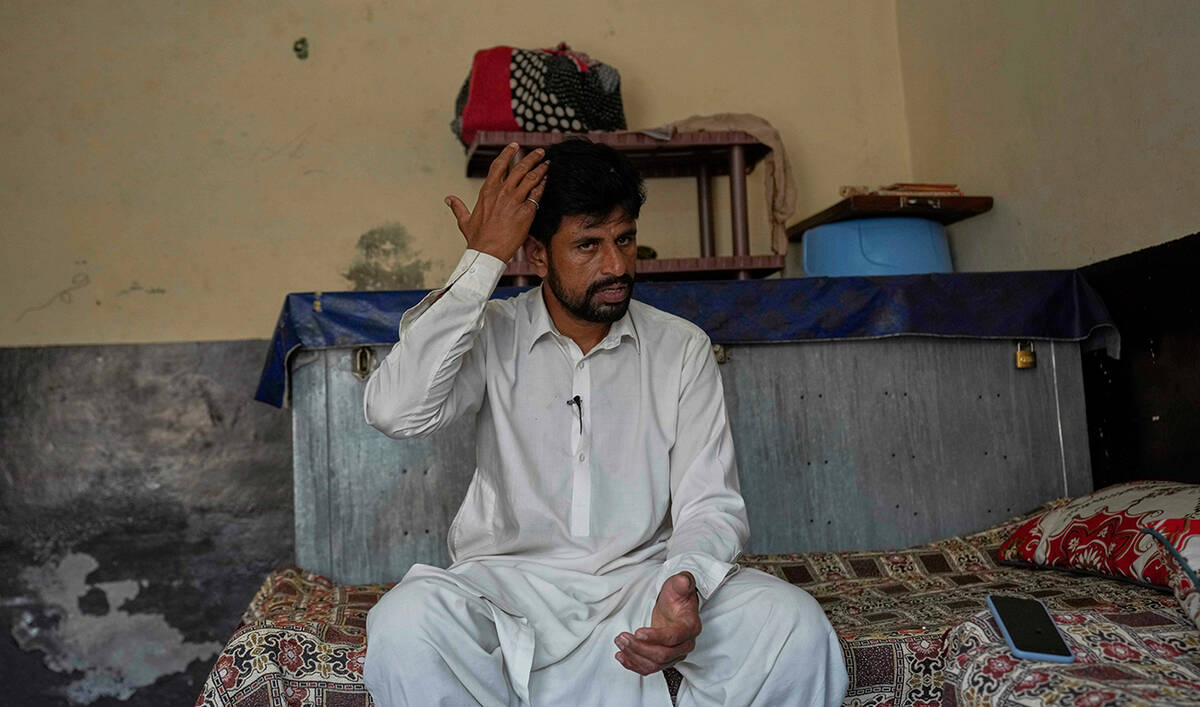
Imran Iqbal, who survived a failed attempt to reach Spain by boat, tells his story during an interview with The Associated Press in Gajju, a village in Gujrat district, Pakistan, April 16, 2025. (AP)
Mauritanian authorities have launched several investigations into smuggling networks and, in the past two months, heightened surveillance at the country’s borders and ports, according to a Mauritanian embassy official in Madrid who spoke on condition of anonymity because he wasn’t authorized to comment publicly.
While migration to Europe has been falling steadily, the Atlantic Ocean crossing from West Africa to Spain’s Canary Islands has reemerged since 2020.
Nearly 47,000 people disembarked in the Canaries in 2024, an increase from the nearly 40,000 in 2023, according to Spanish Interior Ministry figures.
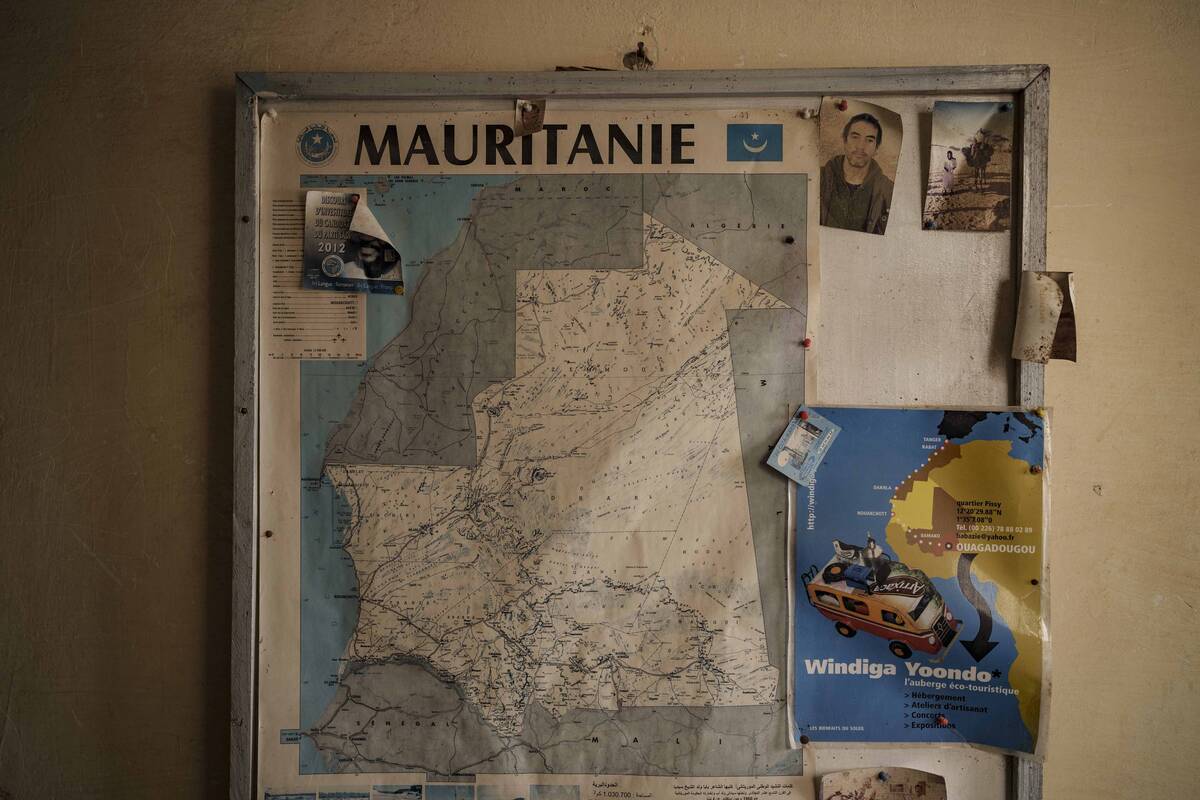
An old map of Mauritania is displayed in a hostel in Nouadhibou, Mauritania on November 30, 2021. (AP/File)
Until recently, the route was mostly used by migrants from West African nations fleeing poverty or violence. But since last year, migrants from far-flung countries like Pakistan, Bangladesh, Yemen, Syria and Afghanistan have increasingly embarked on the fishing boats used to reach the European archipelago.
Smugglers connect with migrants locally in Pakistan and elsewhere, as well as on social media. Migrants post videos of their voyages on TikTok. Although some warn of the dangers, they also share idyllic videos of life in Europe, from Canary Island beaches to the bustling streets of Barcelona and Madrid. For many, Spain is just an entry point for continuing to France, Italy and elsewhere.
Chris Borowski, spokesperson for the European Border and Coast Guard Agency Frontex, believes smuggling networks bringing Pakistanis and other South Asian migrants through the Canaries are still “testing the waters” to see how profitable it is.
However, experts at the Global Initiative Against Transnational Crime warn the route is here to stay.
“With the conflict landscape showing no sign of improvement, movement on the Canary Islands route looks set to increase,” the group warned.
“Because it remains the deadliest migration route in the world, this has severe humanitarian implications.”
The Atlantic Ocean crossing can take days or weeks. Dozens of boats have vanished.
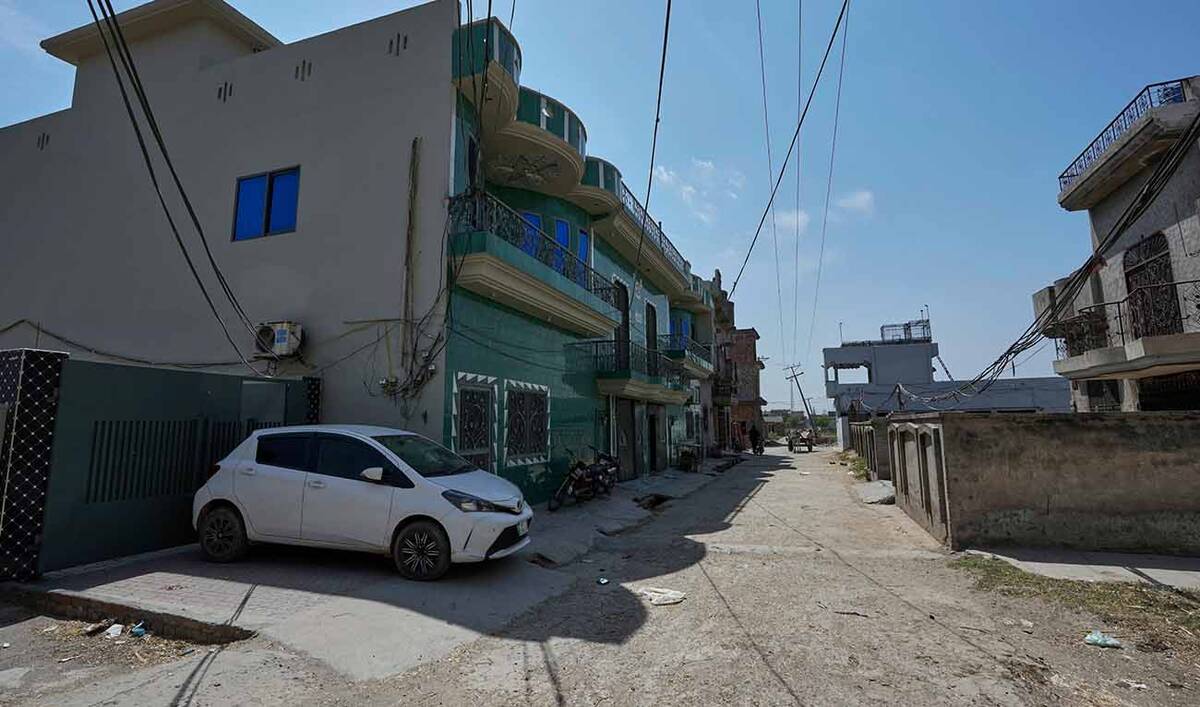
A car is parked outside a big house in Dera Bajwa, Pakistan, that is owned by a family that settled in Europe, on April 23, 2025. (AP)
Exact figures don’t exist, but the International Organization for Migration’s Missing Migrants Project recorded at least 1,142 deaths and disappearances last year, a number it calls a vast understatement. Spanish rights group Walking Borders reported nearly 9,800 victims on the Canaries route last year — which would make it the world’s deadliest migration route.
Only a tiny fraction of bodies are ever recovered. Some shipwrecked vessels have appeared hundreds of thousands of miles away, in the Caribbean and South America.
The boat Ali and Iqbal boarded had a 40-person capacity but was packed with more than double that. Immediately, there were fights between the Pakistanis and the Africans on board, they said.
The Associated Press wasn’t able to locate non-Pakistani survivors to verify the accusations, but reports of violence on the Canaries journey are frequent even among those of the same nationality and ethnicity. Dehydration can cause hallucinations, exacerbating tensions.
“The weather was terrible,” Ali said. “As water entered the boat, the crew threw our belongings and food into the sea to keep the boat afloat.”
On the fifth day, a man died of a heart attack, Ali and Iqbal said. More people perished every day, their bodies thrown overboard; while some died from hunger and thirst, the majority were killed.
“The crew attacked us with hammers, killing 15 in one night,” Ali said. Both men showed photos of injuries others sustained, although AP couldn’t verify what caused them.
“The beatings were mostly to the head — so brutal that people started losing their sanity,” Iqbal said. They prayed for a merciful death, convinced they had little chance of survival.
On the 10th night, after dozens had died, lights appeared on the horizon. They shouted for help. At daybreak, a fishing vessel approached, handing them food and water before eventually towing them to the West African coast two days later. Forty-four Pakistanis had died.
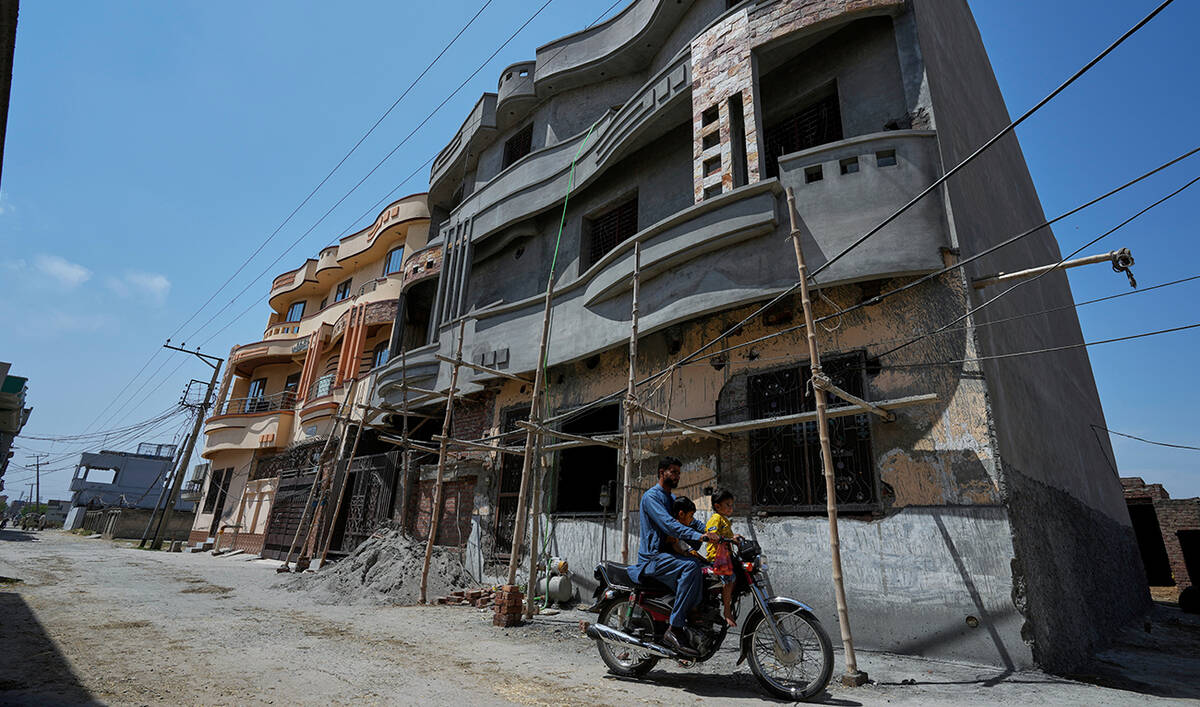
A man drives in front of a house under construction in Dera Bajwa, Pakistan, that is owned by a family that settled in Europe, on April 23, 2025. (AP)
“Only twelve bodies returned to Pakistan,” Ali said. “The rest were lost at sea.”
BACK AT SQUARE ONE
News of the failed journey made international headlines, prompting a pledge by Pakistani President Asif Ali Zardari to go after smugglers.
Pakistan’s Federal Investigation Agency has arrested dozens of people suspected of arranging the journey or connections to the smugglers.
A nationwide crackdown was already underway, but smugglers change locations to evade capture. In Europe and Pakistan, smugglers who are caught are primarily low-level operatives, resulting in limited impact on the overall business.
Staring at the mansions being built around his modest brick home in the Pakistani village of Dera Bajwa, Ali reflected on his wasted journey.
“These are the houses of those who made it abroad,” Ali said. “People like me see them and dream without thinking.”

















